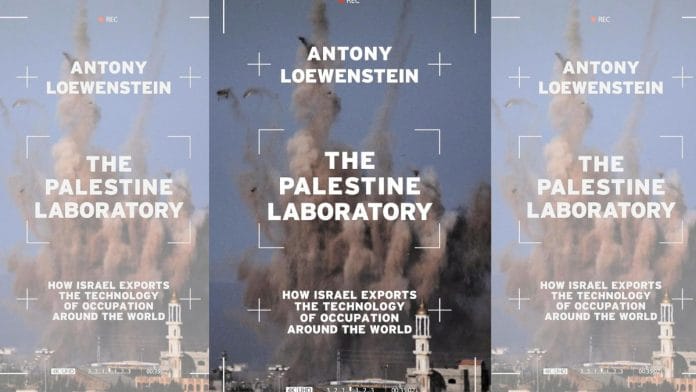Thank you dear subscribers, we are overwhelmed with your response.
Your Turn is a unique section from ThePrint featuring points of view from its subscribers. If you are a subscriber, have a point of view, please send it to us. If not, do subscribe here: https://theprint.in/subscribe/
Reading The Palestine Laboratory after Israel launched its horrific, genocide-instigating attack on the Gazan people in October 2023 was especially illuminating because the book’s astute analysis roughly forecasts the possibility that a recently re-elected Netanyahu government will use war as a pretext to escalate the Nakba—the Palestinian people’s displacement, immiseration, and ongoing destruction as a people. “Ethnic cleansing against occupied Palestinians, or population transfer, forcible expulsion under the guise of national security,” he bemoaned in it, “a worst-case scenario, long feared but never realised.” As the world witnesses through social media the methodical destruction of Gaza, there is a scene that may be unfolding in Gaza right now.
The book’s core argument is that Israel utilises Palestine to test weaponry and to take advantage of human suffering. Indeed, the book delves into how Israel and other interested parties, such as the European Union, rely on Israeli combat technology exports to define and protect their own borders, as well as how their own national security interests have become intimately linked to the occupation of Palestine.
Loewenstein’s well-researched book illustrates how states and corporations have been ready to pay Israel significant sums of money for surveillance technology such as drones, face recognition software and malware, and weaponry.
Intelligence agencies like the US National Security Agency and nations like Saudi Arabia and Mexico also collaborate closely with Israeli businesses to “data mine” and carry out surreptitious cyber surveillance against dissenters, journalists, and human rights advocates.
The relationship between pro-Israeli specialised groups and social media platforms like Meta, TikTok, and “X” (formerly known as Twitter) that promote the removal or suppression of content that is perceived to be pro-Palestinian or critical of Israel is explored in depth in the book. Loewenstein contends that pro-Israel lobby organisations are influencing the global narrative of occupation with the help of these multinational corporations, citing innumerable instances of the suppression of Palestinian information on social media.
According to Loewenstein, the State of Israel has provided weaponry and military technology to a number of cruel regimes over the years, ranging from 1950s Burma to paramilitary groups in El Salvador and Guatemala to Iran under the Shah. Israel makes a lot of money by deliberately backing destabilisation and occupying troops, which it then invests back into its own security infrastructure with no international criticism.
It is appropriate to consider Loewenstein’s concluding observations as we pass more than 300 days of unrestrained carnage in Gaza: “Israel has sold so much defence equipment to so many nations that it hopes to insulate itself from any political backlash to its endless occupation.” This has never been more apparent than in Gaza, where the international community is unable to impose a quick ceasefire in order to stop additional misery and fatalities.
The Palestine Laboratory: How Israel Exports the Technology Occupation Around the World is a must-read for anybody interested in how Palestinian oppression intersects with the global export of military technologies. It also provides some of the answers to the question, ‘Why hasn’t the international community done more in Gaza?’ Loewenstein effectively argues that we should pay more attention to the involvement of other states in aiding Palestine’s illegitimate occupation.
These pieces are being published as they have been received – they have not been edited/fact-checked by ThePrint


